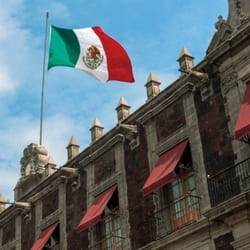By Tony Payan, Ph.D.
Françoise and Edward Djerejian Fellow for Mexico Studies and
Director, Center for the United States and Mexico
Mixed Results
Mexico’s June 6 midterm elections were a crucial test for the country’s democracy. Many saw it as a referendum on the policies of Andrés Manuel López Obrador and his political party, MORENA, which have exercised power by weakening several of the country’s institutions, especially those that provide checks and balances; by criticizing the media and intellectuals; by discrediting political rivals and critics of all stripes; and by polarizing Mexico’s society in general. All of this was largely possible because the Mexican electorate handed them a qualified majority in both chambers of congress in 2018. But the vote in last Sunday’s election had the potential to shift the balance of power and serve as a check on MORENA’s — and the president’s — actions.
By Monday, most of the election results were in, and they showed a mixed picture — more so in the way the numbers played out against the political landscape than in the numbers themselves. MORENA did secure 10 of 15 governorships. That is quite a win. However, it lost control of its crown jewel, Mexico City, where it was defeated in 10 of 16 mayoral races. MORENA also lost its qualified majority in the lower house of congress, shrinking considerably from two-thirds control (along with its allies, the Workers Party and the Green Party), to just barely over 50% control, including those allies. This result in the congressional elections represents a de facto withdrawal of the 2018 electoral mandate, when López Obrador received 53% of the vote and two-thirds control of congress.
A President Checked?
Although in another context these numbers might appear to be a major win for MORENA and the president, losing considerable ground in the congressional election means that 1) they will not be able to change the constitution — which they have already done 17 times — to move Mexico in the direction they would want, and that 2) passing legislation has just become more difficult. In theory, this means the president and MORENA legislators may have to negotiate with the opposition on many more issues than they would have wanted to. The opposition coalition, composed of the National Action Party (PAN), the Institutional Revolutionary Party (PRI), and the Democratic Revolution Party (PRD), along with the Citizen Movement Party (MC), appear to have left the president with much less room to maneuver.
This does not mean that the president will actually negotiate any legislation with them, however. He has shown a deep contempt for his political rivals, and may exhibit an even more aggressive attitude – causing the opposition to dig in its heels in response. This will lead to serious governability issues for Mexico. The situation may turn even more acrimonious than it was before the elections. But at least for now, the president may be held somewhat “in check” by a now-emboldened opposition, which had the good judgment to join forces and combine their votes instead of splitting them.
Democracy Won
At the end of the day, López Obrador and his party accepted the election results; and their continuous attacks against those around them neither weakened the institutional capacity of Mexico’s electoral system nor deterred Mexicans from going to the polls. Mexicans, now used to free and fair elections, were unfazed by the presidents’ attacks on his rivals and the National Electoral Institute — and they ensured, collectively, that democracy carried the day, despite unprecedented electoral violence, with nearly 100 candidates killed or wounded in violent attacks in recent weeks.
Kamala Harris Goes to Mexico
The potential damage to the binational relationship caused by a more fragmented congressional environment in Mexico, with a president unwilling to negotiate with the opposition, cannot be underestimated. Mexico is in a spiral of crime and violence, as what appears to be an indifferent central government fails to coordinate strategies with the governors and mayors of the largest cities. The economic crisis, partly due to López Obrador’s demonstrated obstruction of the private sector, was made worse by the pandemic. The result could be more uncertainty for U.S. investments in Mexico, a more empowered set of criminal organizations, and a new wave of Mexican undocumented migrants, propelled by a deteriorating situation at home and a government unable or unwilling to negotiate or work with the opposing party to repair the damage.
With the election results in hand, and no doubt anticipating the storm clouds ahead, Vice President Kamala Harris will visit Mexico on June 8. She is likely to attempt to convince López Obrador to cooperate with U.S. interests — on security, immigration and trade. But López Obrador has clearly exhibited his dislike of the Biden administration — and even if he feels obliged to cooperate on some level, he is likely to drag his feet.
Washington, however, must not give up. It should engage Mexico’s people, supporting every effort to create more spaces to fight corruption and impunity, and to strengthen democracy and human rights. This is not likely to go down well with López Obrador, who already considers such moves as imperialistic interventionism. But López Obrador will be gone in three years, and the binational relationship will remain. This means that, despite what happened in last weekend’s elections, and despite the mixed results, the White House’s vision must be long-term, and all efforts by Vice President Harris must lay the foundation for a stronger Mexican society and a more orderly and friendly relationship in the decades to come.
